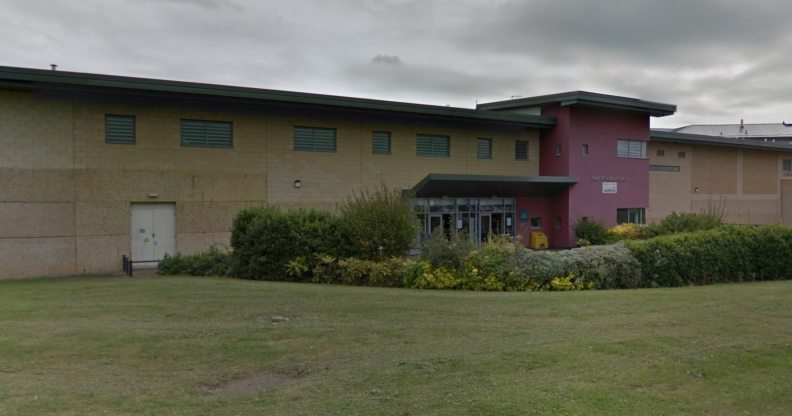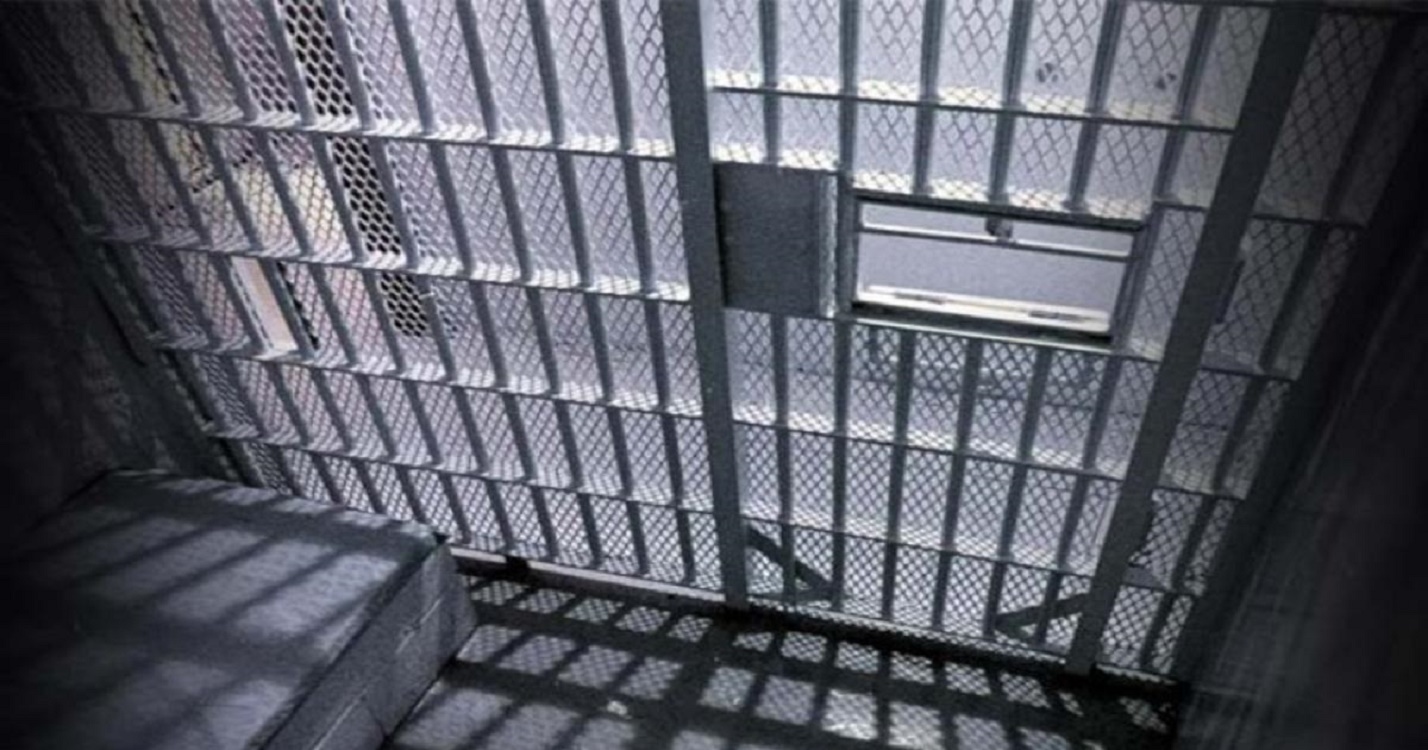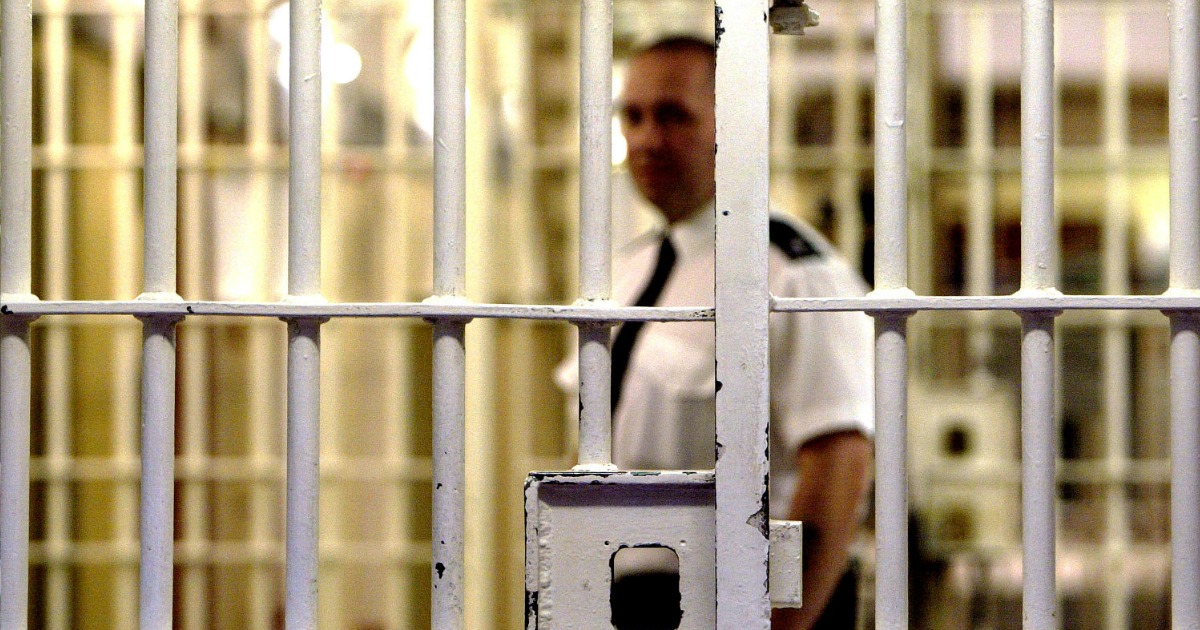Prison bans lesbian inmates from sharing cells with their girlfriends

A prison has banned lesbian inmates from sharing cells with each other if they’re having sex.
The news comes from HMP Peterborough in Cambridgeshire, a privately-run prison that houses 400 female inmates in its closed women’s facility.
A report published last week by HM Chief Inspector of Prisoners makes public the regulations at the prison, which is run by French facilities management company Sodexo.
The report explains the policy at the all-female prison for when two prisoners are in a relationship.

It states: “A managing relationships policy set out guidelines for women in relationships, outlining what was acceptable and what was not.
“Women in relationships could apply to be in the same unit but not in the same cell.”
It is unclear how exactly the policy is enforced.
According to data collected via prisoner interviews, six percent of women at the prison are lesbians, while a further 11 percent are bisexual.
The report also notes that “there was too little literature of specific interest to gay, bisexual or transgender women” in the library.
However, the inspectors found that “gay and bisexual women were managed appropriately.”

(Stock)
A shocking 92 percent of the LGB prisoners reported experiencing mental health problems.
Three percent of prisoners at the facility are transgender.
The report notes: “The transgender population reported receiving positive support from staff and multidisciplinary care planning helped meet their needs.”
It adds: “Trans women received support through multidisciplinary case reviews. No identified external support agencies were available to assist this group.”
The UK’s prison system has recently faced pressure to modernise its policies for LGBT inmates, particularly trans people.
Despite official guidance that states transgender women should not be placed in male general population, trans women in the UK are frequently forced to serve time in men’s prisons.
Last month, police were investigating two sexual assaults on trans women that took place in at HM Prison Littlehey, a Category C male sex offenders prison in Cambridgeshire.
One of the women was sexually assaulted in her cell on September 3, while the second was propositioned by another prisoner and asked to perform a sex act.
A source told the newspaper: “Two allegations of very serious sexual assault in a short period is unprecedented.
“The prison is investigating and considering changes to the way it deals with transgender inmates.”
A Ministry of Justice official said: “It would be inappropriate to comment further while investigations are ongoing.”
In 2015, the government carried out a review the way trans people in prisons are dealt with after two female prisoners died within weeks of each other while being held in all-male facilities.
A third prisoner, Tara Hudson, was moved to a female facility after a public campaign.
The review, overseen by Peter Dawson of the Prison Reform Trust and Jay Stewart of Gendered Intelligence, led to reforms to National Offender Management Service procedures.
It directs: “People who are living in a gender different to that of their assigned sex at birth should, as a general presumption, be treated by offender management services according to the gender in which they identify.
“Clear, reasonable criteria should be applied from the outset for all transgender people who receive a binary (i.e. either a male or female) service from NOMS, where it is required.
“This process should be free from bias, follow a clear, recorded process and be undertaken by staff who have a sound basic awareness of transgender identity, with access to specialist advice.”

However, despite the guidance, campaigners say little has changed – and there are still a number of trans women serving time in male prisons.
The NOMS document states that trans women can be sent to men’s prisons if there is a ‘lack of evidence’ of their gender identity or if they are judged to be a threat.
It states: “There will be circumstances when a transgender person’s location cannot be straightforwardly reconciled with their views.
“This may be due to a lack of evidence (or the presence of counter-evidence) relating to the gender in which they identify and/or concerns raised via an assessment of all known risks, indicating they cannot be safely managed in a prison that does match their self-identified gender.
“Guidance on how NOMS staff weigh evidence and risk should accompany any new instruction.
“Decisions on the allocation of transgender people to binary services, especially custody, must include the possibility of a review and rapid remedy if it appears that the initial allocation might have an unforeseen and detrimental impact on the person’s mental health or well-being, their social integration and access to services, or an impact on safety to themselves or the safety of others.”

However, it directs: “Regardless of where prisoners are held, they should be respected in the gender in which they identify, being provided with those items that enable their gender expression.”
In a previous statement, the MoJ said: “It is apparent that the treatment of transgender people in courts, probation and prison services has not kept pace with the development of a more general understanding of the issues surrounding gender in society.
“Policy in this area needs to evolve and take as its starting presumption a wish to respect someone in the gender in which they identify, once in the care of the criminal justice system.
“Allowing transgender offenders to experience the system in the gender in which they identify will, in the great majority of cases, represent the most humane and safest way to act.
“We believe it will also assist successful rehabilitation. In the minority of cases where that is not possible, the reasons for departing from this starting presumption must be clear, explicit and made known to the person they affect, especially when it involves assigning someone to a male or female prison.”

